
Underground comix are small press or self-published comic books that are often socially relevant or satirical in nature. They differ from mainstream comics in depicting content forbidden to mainstream publications by the Comics Code Authority, including explicit drug use, sexuality, and violence. They were most popular in the United States in the late 1960s and 1970s, and in the United Kingdom in the 1970s.
The Beat Generation was a literary movement started by a group of authors whose work explored and influenced American culture and politics in the post-war era. The bulk of their work was published and popularized throughout the 1950s. The central elements of Beat culture are the rejection of standard narrative values, making a spiritual quest, the exploration of American and Eastern religions, the rejection of economic materialism, explicit portrayals of the human condition, experimentation with psychedelic drugs, and sexual liberation and exploration.

Bryan Talbot is a British comics artist and writer, best known as the creator of The Adventures of Luther Arkwright and its sequel Heart of Empire, as well as the Grandville series of books. He collaborated with his wife, Mary M. Talbot to produce Dotter of Her Father's Eyes, which won the 2012 Costa biography award.
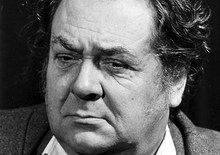
Jeffrey Addison Nuttall was an English poet, publisher, actor, painter, sculptor, jazz trumpeter, anarchist and social commentator who was a key part of the British 1960s counter-culture. He was the brother of literary critic A. D. Nuttall.

The British counter-culture or underground scene developed during the mid 1960s, and was linked to the hippie and subculture of the United States. Its primary focus was around Ladbroke Grove and Notting Hill in London. It generated its own magazines and newspapers, bands, clubs and alternative lifestyle, associated with cannabis and LSD use and a strong socio-political revolutionary agenda to create an alternative society.
John "Hoppy" Hopkins was a British photographer, journalist, researcher and political activist, and "one of the best-known underground figures of 'Swinging London' " in the late 1960s.
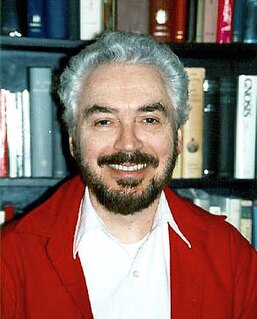
Tom Veitch is an American writer known for his work in the comic book industry. He is also a novelist and a poet.
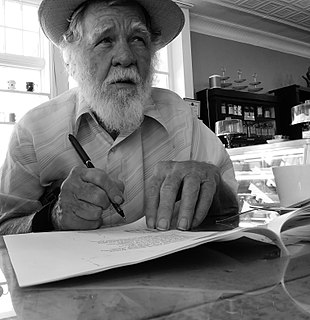
Charles Plymell is a poet, novelist, and small press publisher. Plymell has been published widely, collaborated with, and published many poets, writers, and artists, including principals of the Beat Generation.

James Almand Haynes was an American-born figure in the British "underground" and alternative/counter-culture scene of the 1960s. He was involved with the founding of Edinburgh's Traverse Theatre, the paper International Times and the London Arts Lab in Drury Lane for experimental and mixed media work.

Don 'Barry' Mason (1950–2006) was the founder of the Psychedelic Shamanistic Institute (PSI), a networking organisation that encouraged ethnobotany and scientific research into cannabis and other psychoactive plants while contributing substantially to the public debate about drug policy reform. Associates of PSI include: Mathew Atha, Colin Angus, Brian Barritt, Michael Carmichael, Fraser Clark, Paul Devereux, the late John Entwistle, Paul Flynn MP, Ben Ganly, Lee Harris, Mike Jay, Howard Marks, Dr John Marks, Jonathan Ott, Dr Russell Newcombe, Richard Rudgley and Youth.
River Styx is a literary journal produced in St. Louis, Missouri and published two times a year by the Big River Association. It is the oldest literary journal in St. Louis, Missouri
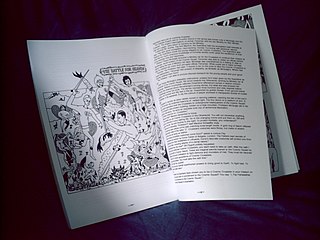
Michael John Weller is a British underground comics artist, political writer, cartoonist, activist and album-cover designer.
Allen Ginsberg Live in London is a DVD film of Allen Ginsberg reading his poetry, singing songs and performing a Tibetan meditation live on stage in London on Thursday 19 October 1995, at Megatripolis club-night at Heaven nightclub, London.
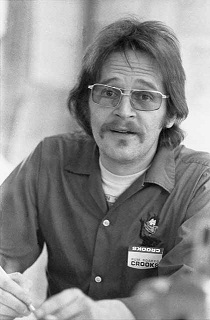
Dave Sheridan was an American cartoonist and underground comix artist. He was the creator of Dealer McDope and Tales from the Leather Nun and collaborated with Gilbert Shelton and Paul Mavrides on The Fabulous Furry Freak Brothers.

The Birmingham Arts Laboratory or Arts Lab was an experimental arts centre and artist collective based in Birmingham, England from 1968 to 1982 – an "arts and performance space dedicated to radical research into art and creativity". Loosely organised and biased towards the obscure and avant-garde, it was described by The Guardian in 1997 as "one of the emblematic institutions of the 1960s".

Angelfood McSpade is a comic book character created and drawn by the 1960s counter culture figure and underground comix artist Robert Crumb. The character first appeared in the Philadelphia-based underground newspaper Yarrowstalks #2 in July 1967, making her comics debut in the second issue of Zap Comix.

Ron Whitehead is an American poet, author and activist. Whitehead was born on a farm in Kentucky, but traveled to the University of Louisville and Oxford University to pursue his academic interests.
Suzy Varty is a noted British comics artist, writer, and editor. In the late 1970s, she compiled, contributed to and edited Heröine, the first anthology of comics by women to be published in the U.K. Throughout the 70s, she was part of the Birmingham Arts Lab, and she has participated in the Underground Comix and Wimmen's Comix movements in the U.S. Varty remains active in the British Comics scene, frequently appearing at such conventions as Thought Bubble Comic Arts Festival in Leeds and the Canny Comic Con in Newcastle.

Songs of Innocence and Experience is an album by American beat poet and writer Allen Ginsberg, recorded in 1969. For the recording, Ginsberg sang pieces from 18th-century English poet William Blake's illustrated poetry collection of the same name and set them to a folk-based instrumental idiom, featuring simple melodies and accompaniment performed with a host of jazz musicians. Among the album's contributors were trumpeter Don Cherry, arranger/pianist Bob Dorough, multi-instrumentalist Jon Sholle, drummer Elvin Jones, and Peter Orlovsky – Ginsberg's life-partner and fellow poet – who contributed vocals and helped produce the recording with British underground writer Barry Miles.














